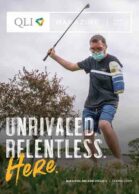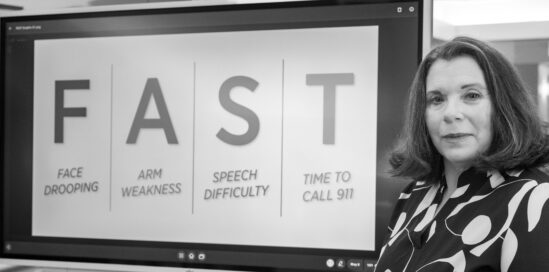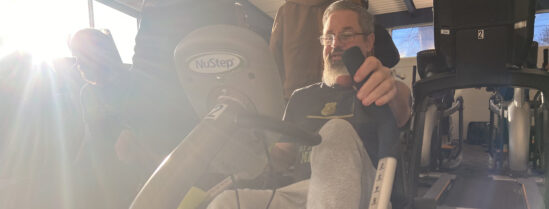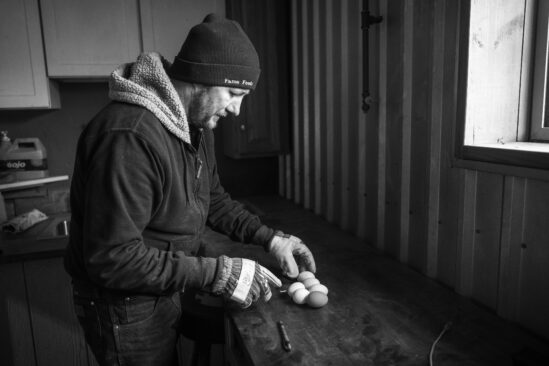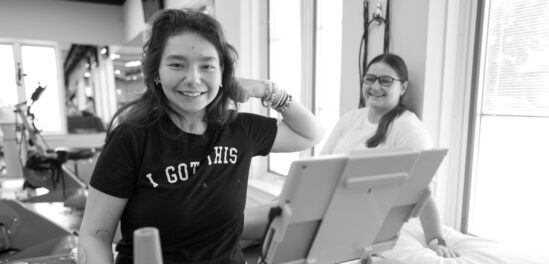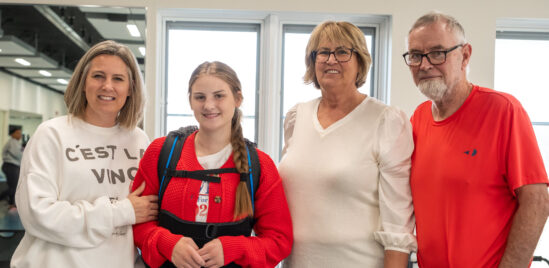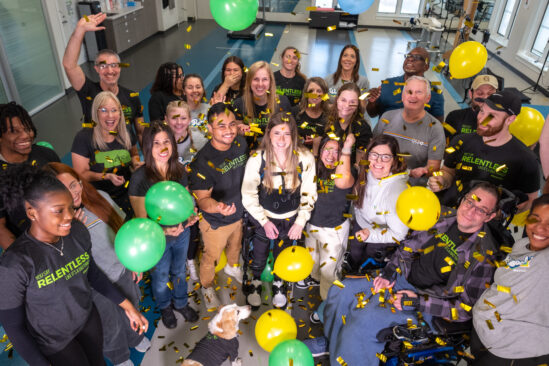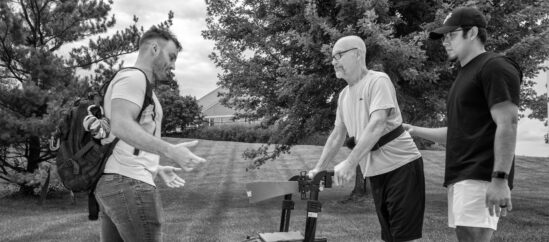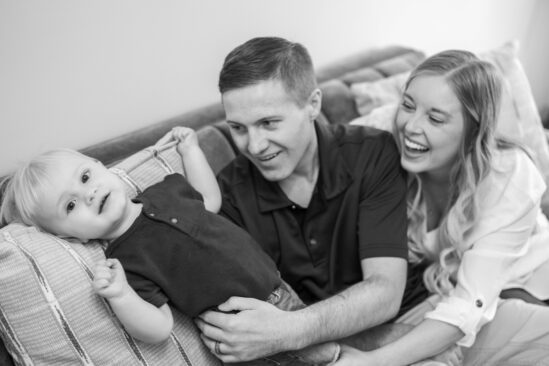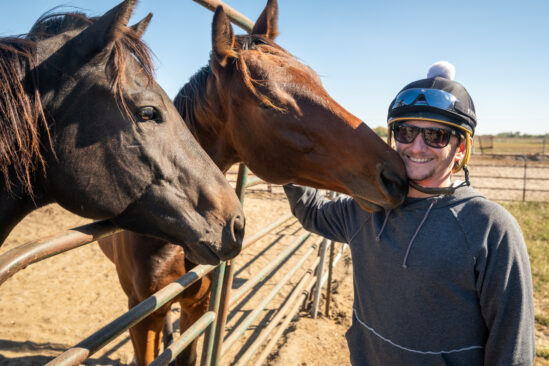Eye, focused.
A red mushroom set against a background of green, purple, and blue. Like tie-dye.
For this session, all it needs is a touchup.
A series of white dots with the red cap and black paint solidify the inside boundaries.
Careful, measured. A surgeon’s eye.
The detail, the creative process—it means something to Ricky Reeves, which is unexpected.
“I never painted before I came here,” he muses.
His latest designs fill the pages of a sketchbook. There are variations on Spiderman and SpongeBob, and other characters that feel familiar but are originals. “I like the way images can be used to tell a story,” he notes. Every brush stroke paints the pictures and belies the character of their creator.
At nineteen years old, he’s easygoing yet gregarious, with an ample amount of ambition too. A carefree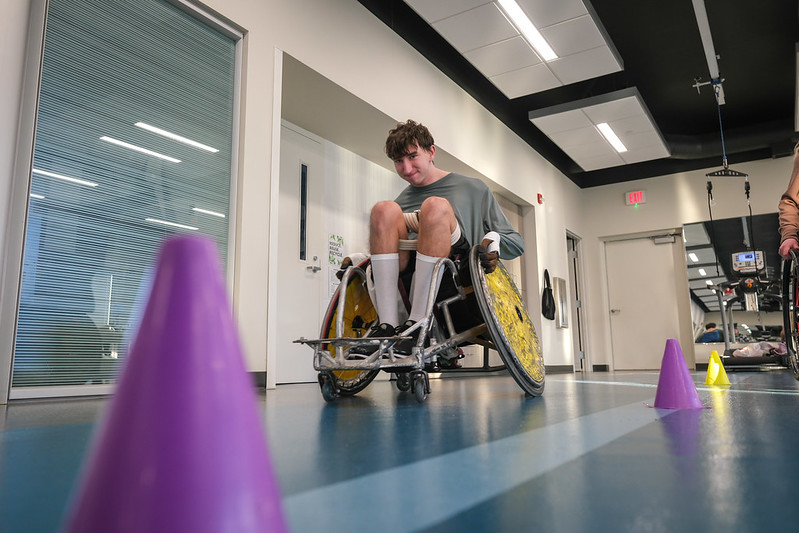 character that is in equal measures focused and wise. Ricky may be leaning into art now but it is just one part of who he is. The images he creates speak of accomplishment in so many ways. A little over a year ago he was captain and the MVP of Blair High School’s (in Maryland) baseball team, and an accomplished athlete on the swim team.
character that is in equal measures focused and wise. Ricky may be leaning into art now but it is just one part of who he is. The images he creates speak of accomplishment in so many ways. A little over a year ago he was captain and the MVP of Blair High School’s (in Maryland) baseball team, and an accomplished athlete on the swim team.
Ricky had a crystal clear understanding of a healthy lifestyle, of goal creation, which informed his decision to move out to Los Angeles. It was that very power and instinct that drove Ricky to pursue advertising in the first place.
That’s what he found in his freshman year at Loyola Marymount University. Being new to the area of course meant exposure to new experiences that weren’t readily available in Maryland.
It was going to be a fun little trip down to the beach over Labor Day weekend, trying body surfing for the first time. A rogue wave came over him, breaking his neck. Ricky couldn’t move.
__
If images paint the pictures and work in such a way to convey interest or intrigue, then the images of Ricky’s rehabilitation journey begin with confidence and slight trepidation.
“He had a level of maturity about him that I wasn’t expecting from someone so young,” says his then-house coordinator Janelle Thomas.
Early on, as it can be for many of QLI’s clients, Ricky took time to grow accustomed to his rehabilitation schedule, the feel of QLI’s campus, and the atmosphere created by QLI team members and clients.
“What will this be like?”’ Ricky remembers asking himself. “I heard of the vision but didn’t know what that would translate into for me.”
“Ricky’s awareness of his emotional and mental health is outstanding,” says occupational therapist Sara Waid.
Ricky was and continues to be consistently forward-thinking, inquisitive, and demonstrate an intuitive look into the facets of his life that concern him, quickly adapting to match the situation and goals. When it comes to the ultimate of what he wishes to get out of his recovery, it is quite simple—independence.
You remember how you were fresh out of high school, beginning that phase of life you yearned for. 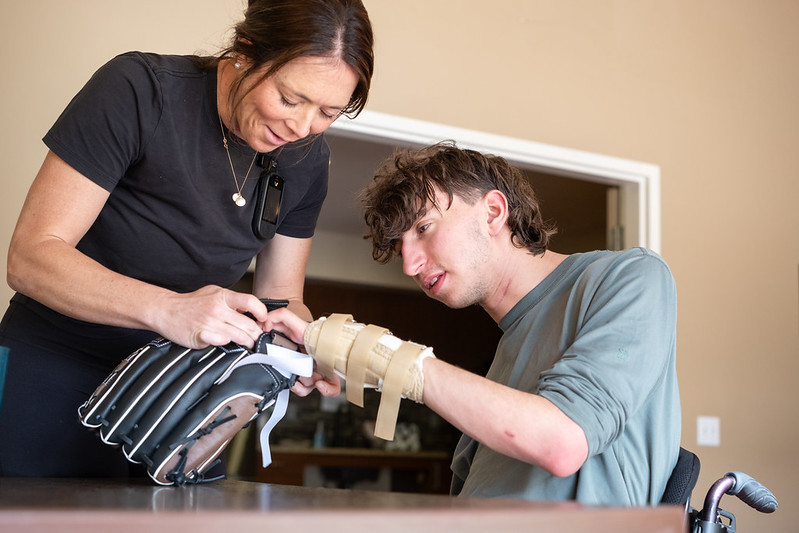 Perhaps it was an opportunity to get out from under your parents’ shadow, or the chance at a job you always wanted. That’s independence, sure, but only in part.
Perhaps it was an opportunity to get out from under your parents’ shadow, or the chance at a job you always wanted. That’s independence, sure, but only in part.
Ricky’s looking to independence en toto—which is why Ricky’s program at QLI was perfect for him. It did not just a return to college and his advertising track, but independence in transfers, and activities of daily living (tasks such as bed mobility, toileting, bathing, and dressing). It is in this latter focus that one of Ricky’s greatest virtues shines through the most—his patience and resolve. QLI covers the entire picture of recovery, not just one or two aspects of it.
Through the rapport he’s built with his clinicians, and the comfort level that comes with it, he puts forward ideas. “When I first came to QLI,” says Ricky, “I thought I knew what I wanted and the way I wanted to achieve it. But I’ve learned that whatever works, works—I’m not going to turn down the chance to try something that could be the solution I’m looking for.”
Ricky sticks with things—he is never liable to abandon something because it doesn’t click at first. That idea has paid off so clearly in his progression through gaining back his strength, now able to push himself in his wheelchair from the house to the Lied Life Center. Further, he’s continuing to make tremendous progress in his transfers and routines.
It helps, too, with his peers behind him for support. “Ricky has been fortunate to come to QLI when there have been others around his age with similar injuries,” says Janelle. Lingering trepidations and fears about his injury started to fade as Ricky saw the lively energies and attitudes of his peers. They were at a stage in their respective recoveries where they were not only comfortable but eager to go out into the community and do the things that were always a part of their lives. “Ricky could see that the clients and the team never treated him or each other any different because they were in chairs.” If there’s difficulty in any phase of the journey, it’s about providing strategies to support Ricky through, rather than simply stepping in and doing the task or routine for him.
As he centers himself on an eventual return to college, Ricky has the time to try out things like wheelchair rugby, becoming involved in short exercises and games with fellow clients like Pato Gilchrist. Weekly rugby sessions have not only provided a clear and direct avenue for improving himself, but peer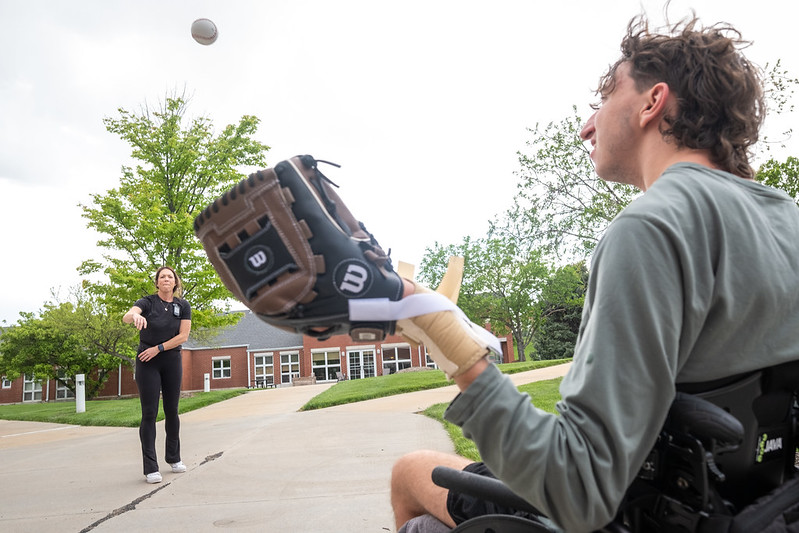 involvement has helped to foster a competitive environment and edge. Competition and drive are, of course, at Ricky’s core, and through it, he is fulfilled. These moments provide a great deal of energy and lightness, yet also bring something deeper—a crucial sense of validation. Injury doesn’t necessarily fix a ceiling over every pursuit, sometimes it opens the doors to significant opportunities and outlets, such as painting for Ricky, which has unlocked a creative side of him he didn’t know existed.
involvement has helped to foster a competitive environment and edge. Competition and drive are, of course, at Ricky’s core, and through it, he is fulfilled. These moments provide a great deal of energy and lightness, yet also bring something deeper—a crucial sense of validation. Injury doesn’t necessarily fix a ceiling over every pursuit, sometimes it opens the doors to significant opportunities and outlets, such as painting for Ricky, which has unlocked a creative side of him he didn’t know existed.
Ricky is, as he says, not defined by “definition,” or how his injury can be classified on paper. He understands the possibilities and probabilities, but he has seen the progress of those around him and knows that the clinically determined and reality can be very far apart. “Never be content with being put in a box or category” Ricky confidently states. “You grow comfortable with the fact that what happened, happened and you can’t take it back. The only thing you can do is get better at being in your shoes.”
Learning himself, learning to be Ricky, just as he always has.



